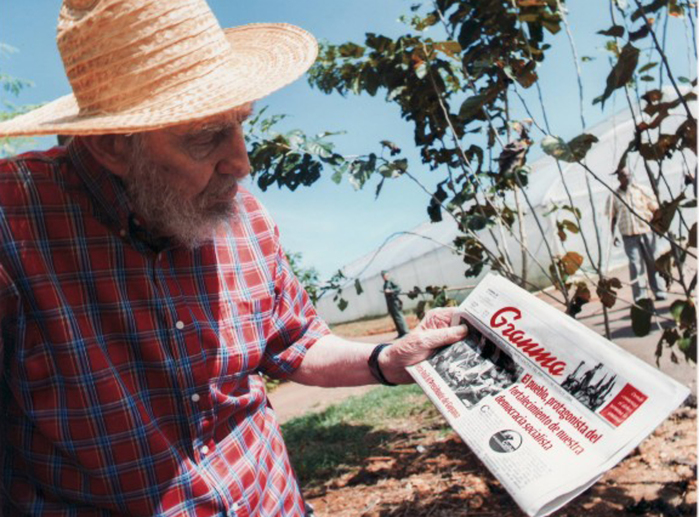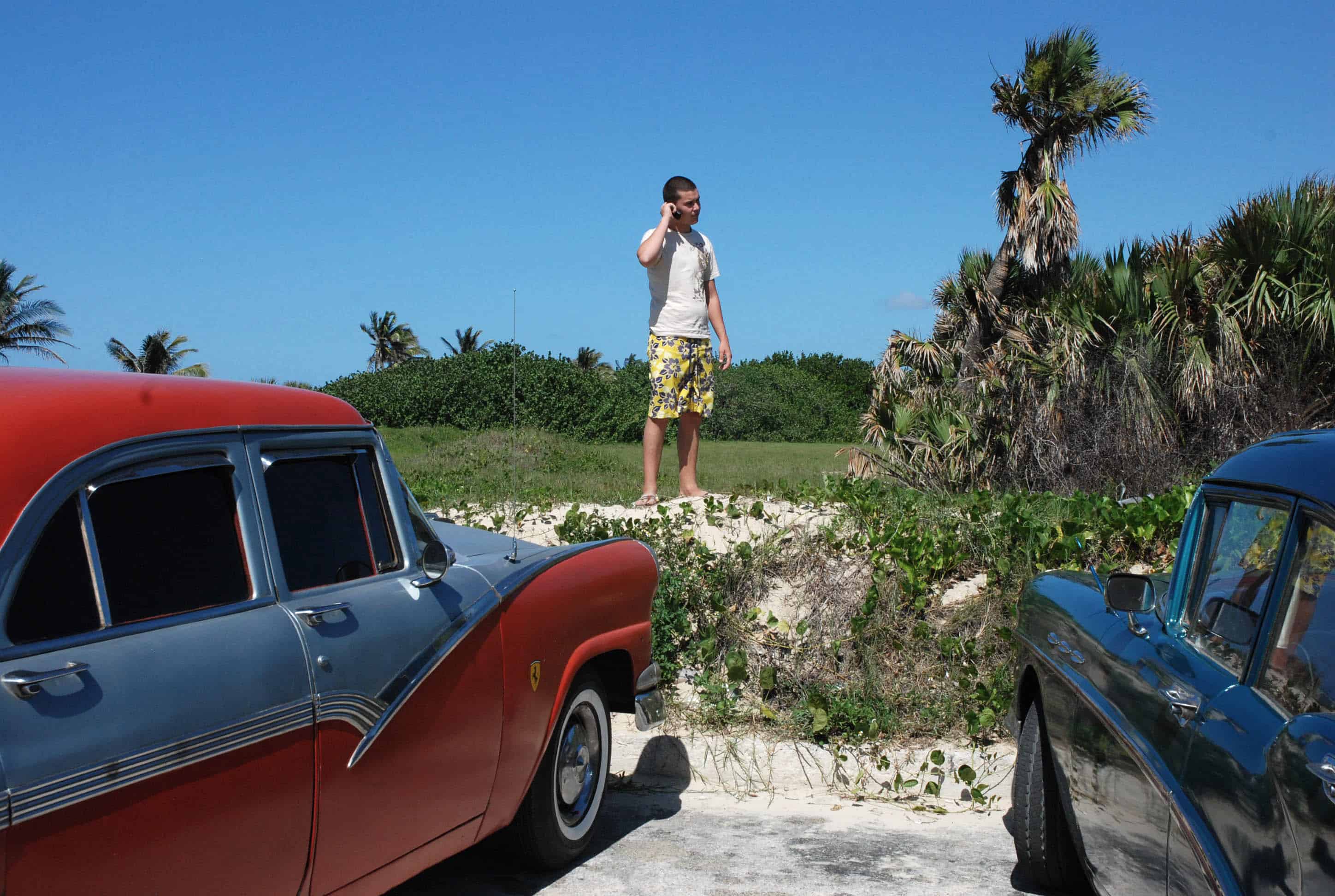On April 6, 1960, a U.S. diplomat named Lester Mallory wrote a secret memo about Cuba. Subject line: “The Decline and Fall of Castro.”
Make Cubans unhappy, argued the memo, which was a precursor to the U.S. embargo. Saddle them with “economic dissatisfaction and hardship.” They’ll sour on Fidel Castro.
Or, others thought, get him with an exploding cigar. Contaminate his scuba suit with tuberculosis. Have the Mafia off him.
More than half a century later, the U.S. government seems to have come up with a much more modern and techie approach: Tweet him off the island.
On Thursday, the United States Agency for International Development confirmed the broad outlines of an Associated Press report exposing the clandestine creation of a phony “Cuban Twitter” network that was meant to undermine the Castro government. The audacious program, set in motion through shell companies around the world, lured 40,000 unsuspecting Cuban subscribers with seemingly innocuous text messages about sports and popular music, the report said. Its creators called the network “Zunzuneo,” Cuban slang for the sound a hummingbird makes.
For all its bravura, the program survived barely two years, failing in 2012 as its funding dried up. The campaign became, as so many before it, a punchline in the annals of an enduring, bizarre and frequently imagination-defying international standoff.
“It’s part of our legacy of the wild and loony brainstorming we’ve been doing on Cuba going back to the ’50s,” Ann Louise Bardach, a Cuba expert and author of “Without Fidel,” said Thursday between bouts of laughter.
The revelation of Zunzuneo’s existence sent official Washington into a spin. Memos unearthed by the AP make it abundantly clear that USAID went to great lengths to keep U.S. government involvement on a need-to-know basis. But White House spokesman Jay Carney said at a briefing that “suggestions that this was a covert program are wrong. … In implementing programs in non-permissive environments, of course the government has taken steps to be discreet.”
Recommended: Cuba passes law to lure foreign investment
USAID defended Zunzuneo in a statement that said: “Cubans were able to talk among themselves, and we are proud of that.” The agency’s administrator, Rajiv Shah, had the misfortune of being previously scheduled to appear Thursday on MSNBC’s “Andrea Mitchell Reports” to discuss another matter. He spent most of his time answering uncomfortable questions about Cuban Twitter. In another bit of bad luck for Shah, he is scheduled to appear Tuesday for a hearing on his agency’s budget before the Senate Appropriations Committee. The committee’s chairman, Vermont Democrat Patrick Leahy, spent much of Thursday appearing on MSNBC programs to rip the Cuban Twitter idea as “dumb, dumb, dumb.”
Leahy has been deeply involved in trying to win the release of Alan Gross, a USAID contractor from Potomac, Md., who was arrested in Cuba in 2010, accused of “actions against the integrity of the state” and sentenced to 15 years in prison. The Gross family says he was on a humanitarian mission to help set up an intranet and improve Internet access for non-dissident Jewish communities. Zunzuneo was launched just months after Gross was arrested, and Leahy has said he is troubled that the timing could have imperiled negotiations to free Gross.

The controversy has set off a kind of existential debate at USAID. The agency is generally known for humanitarian assistance and disaster relief. It is publicly authorized to operate a Cuba democracy project. But setting in motion a secret Twitter project struck many Thursday as either baffling or utterly inappropriate.
“It’s another example of the danger of trying to use foreign assistance as a weapon rather than to support the host government,” said Stephen Kaplitt, a former USAID legal department official who is a consultant to Gilbert, attorneys for the Gross family in pending litigation. “When they drift from their core mission, it substantially impairs trust and credibility.”
This isn’t USAID’s first Cuban misadventure. In 2006, a Government Accountability Office report lambasted the agency, saying nearly all of the $74 million it spent on pro-democracy projects for the island had been distributed without competitive bids or proper oversight. In a now-legendary case of apparent abuse cited in the report, a Miami company allegedly used the USAID money to buy Nintendo Game Boy sets and Sony PlayStations, a mountain bike, leather coats, cashmere sweaters, crab meat and Godiva chocolates.
Despite the agency’s problems, its programs have many advocates in the Cuban exile community. “Everything that opens the windows of the world to Cuba is a good thing,” Jose Basulto, a Bay of Pigs veteran who founded the daredevil Brothers to the Rescue airplane team, said in a phone interview from Miami on Thursday.
Basulto said it is important to find means of communicating with dissidents in Cuba, where the government strictly limits Internet access and blocks many other forms of communication. In the days before Twitter existed, Basulto says he once positioned radio equipment on tall buildings in the Florida Keys to reach Castro opponents on the island.
Phil Peters, founder of the non-profit Cuba Research Center in Alexandria, Va. said Thursday that he’s reviewed a video — apparently of Cuban Interior Ministry officials — warning about possible attempts to use Twitter to undermine the Castro government in 2011.
By then, Cuban Twitter was quietly at work on the island. And the Castros were still in charge. The only difference today is that Cuban Twitter is gone.
Washington Post staffers Karen DeYoung and Alice Crites contributed to this report.
© 2014, The Washington Post





